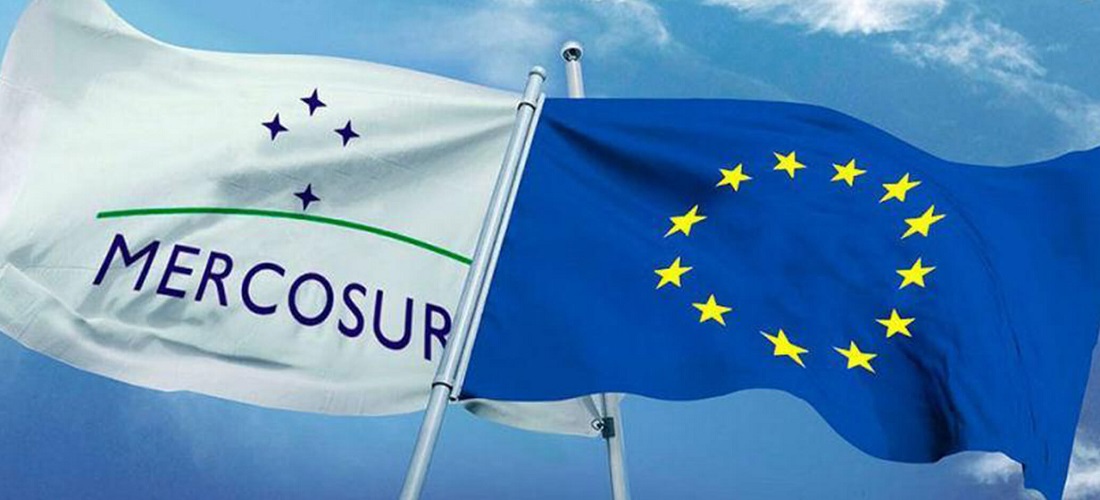
European demand for Brazilian goods surges amidst stringent environmental regulations
Jun, 19, 2023 Posted by Gabriel MalheirosWeek 202324
Ensuring shipments and selling higher value-added goods to the European Union (EU) requires a comprehensive approach, according to experts. They emphasize the need to enhance the competitiveness of domestic industries, advance the Mercosur-EU agreement, and actively participate in debates on forthcoming environmental regulations set to take effect from the end of 2024.
Welber Barral, a partner at the BMJ consultancy, highlights the increasing European demand for food and energy from Brazil. However, he acknowledges the stringent regulatory environment concerning decarbonization and deforestation. Barral evaluates Brazil’s advantageous position in the Carbon Border Adjustment Mechanism (CBAM), the world’s first carbon tax on imports, which will be implemented in 2026. He emphasizes that Brazil has a sustainable energy matrix and that specific sectors, such as steel, have already made efforts to reduce their carbon footprint.
Another critical European rule, Barral explains, is the prohibition of items produced in deforested areas after 2020, even if legally sourced. These rules will come into effect at the end of 2024 and will affect not only agricultural products but the entire production chain.
The following chart shows the total quantity of TEUs exported from Brazil to the EU in the first four months of the year from 2019 to 2023. The information displayed below was gathered from the maritime intelligence service DataLiner.
Exports to the EU between Jan-Apr | 2019 – 2023 | TEU
Source: DataLiner (click here to request a demo)
Rafael Cagnin, economist at the Institute of Studies for Industrial Development (Iedi), points out that these measures are part of a global trend that may influence other markets. “Increasingly, international trade tends to be organized by a set of norms, standards, and technical requirements related to environmental performance and carbon footprint. This is what will influence foreign trade flows from now on,” he says. Cagnin explains that the EU seeks to strengthen these regulations internally and imposes them on its partners. However, he adds, “This does not necessarily go against Brazilian interests. There is a willingness to negotiate.” He believes Brazil needs to actively participate in the discussion to regulate these measures.
“For example, Brazil is very interested in the green hydrogen market, which can contribute to reindustrialization. Standards and norms about what will be considered green hydrogen and how it will be marketed are still under negotiation. Brazil needs to be present in the definition of this, which is also of great European interest,” says Cagnin.
Barral emphasizes that both the CBAM and the deforestation rules apply to everyone, not just to Brazil. He explains, “These measures will create new obligations, parallel to the trade agreement between the Mercosur agreement and the European Union, including the so-called ‘side letter’ proposal.” Barral defends the idea of the “side letter” and states, “If it reopens, we will have another 20 years of discussions for a new agreement.” He mentions that the upcoming presidencies of Brazil in Mercosur and Spain in the European Union can facilitate dialogue.
Cagnin believes that Brazil has the ability and conditions to proceed with the agreement between the blocs without reopening negotiations. He sees the agreement, along with tax reform, as potentially important legacies of the current administration. Cagnin states, “The tax reform and the Mercosur-EU agreement are two issues that were not new to the previous government, but they did not progress advanced due to lack of good judgment in recent years. Now is the time; it is necessary to find a common denominator, to take an important step towards integrating Brazil in the world economy with modern criteria from the environmental point of view and in a consensual way.”
Source: Valor Econômico
To read the original news report, please refer to: https://valor.globo.com/brasil/noticia/2023/06/19/regra-ambiental-tera-impacto-na-exportacao-da-industria.ghtml
-
Grains
Nov, 09, 2021
0
ANEC: Brazil to break record for soy exports in November
-
Sugar and Ethanol
Jun, 25, 2021
0
NYSE: FX rates and oil drive sugar prices
-
Ports and Terminals
May, 22, 2023
0
Brazilian authorities investigate alleged cartel formation among port pilots
-
Tradelane Graphs
Feb, 08, 2021
0
Brazilian container handling by trade lane in 2020


